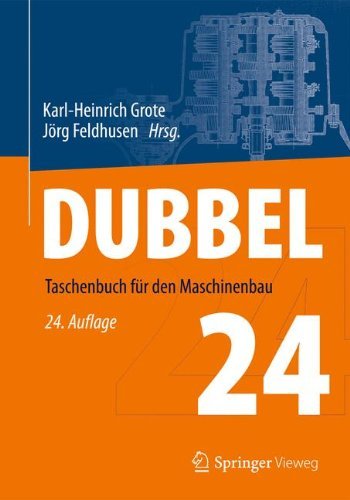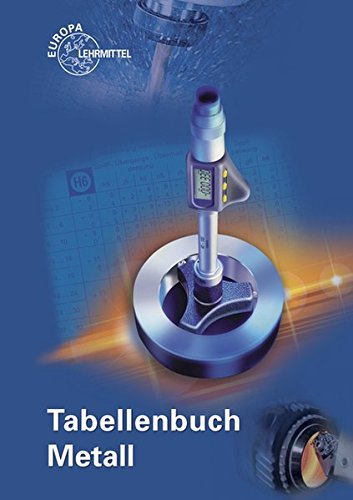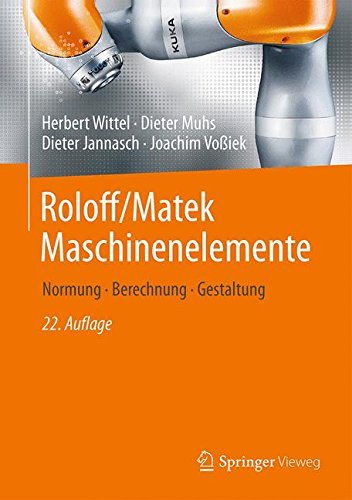
if you ever looked for a good reason to learn German: Mechanical Engineering might be it.
“Engineers like to solve problems. If there are no problems handily available, they will create their own problems.”
― Scott Adams
Since I studied mechanical engineering in Germany, I only know German books. But I am very happy with them so far, and like to share them here.
1. Dubbel - Taschenbuch für den Maschinenbau

“But remember this, Japanese boy... airplanes are not tools for war. They are not for making money. Airplanes are beautiful dreams. Engineers turn dreams into reality.”
― Hayao Miyazaki
The pocket book (Taschenbuch) for mechanical engineering, friendly called "the Dubbel", came a long way from its original form: Started in 1914 by Heinrich Dubbel, it was a relly handy collection of knowlege around mechanical engineering. In the following 100 years it grew to a respectable size of just over 2000 pages.
It is the major book covering everything mechanical engineering from mathematics, contruction, strength calculations, machine parts, nuklear and biomedical engineering and a lot more.
Keeping with the philosophy of the author, the book is kept available at a low price. The 80€ have to be compared to dozen of engineers contributing topics and make this book, filled with knowledge, a real bargain.
If there is one book an engineer needs, than the trusty Dubbel!
2. Hoischen - Technisches Zeichnen

“The problem in this business isn’t to keep people from stealing your ideas; it's making them steal your ideas!”
― Howard Aiken
The Hoischen contains everything there needs to know about technical drawings. That's all.
3. Tabellenbuch Metall: Mit Formelsammlung

“First rule of engineering; beware prototypes. Along with, avoid anything made by an engineer who doesn't have all his own fingers.”
― Simon R. Green
In this book everything important about the fascinating material metal can be found: metal types, tooling techniques, drawing clues, paper folding, heat treatment and much much more.
This book is the steady companion of everyone working with metal.
4. Roloff/Matek Maschinenelemente: Normung, Berechnung, Gestalung

“When you want to know how things really work, study them when they're coming apart.”
― William Gibson, Zero History
For an optimal use of mechanical elements, they have to be calculated exactly. Too small elements break and too big ones are too heavy and expensive. Nerly everything that can be calculated is in this book, together with a detailed explanation.
5. Roloff/Matek Maschinenelemente: Normung, Berechnung, Gestalung

“To the optimist, the glass is half full. To the pessimist, the glass is half empty. To the engineer, the glass is twice as big as it needs to be."
― Unknown
As an addition to the book above, this collection of formulars and tables gives even more optiions to plan the product. They were made by hundreds of engineering graduates, testing all kinds of materials and shapes on their strenghts.
What books can you recommend from your country?
Would you be interested in a more detailed book review?
